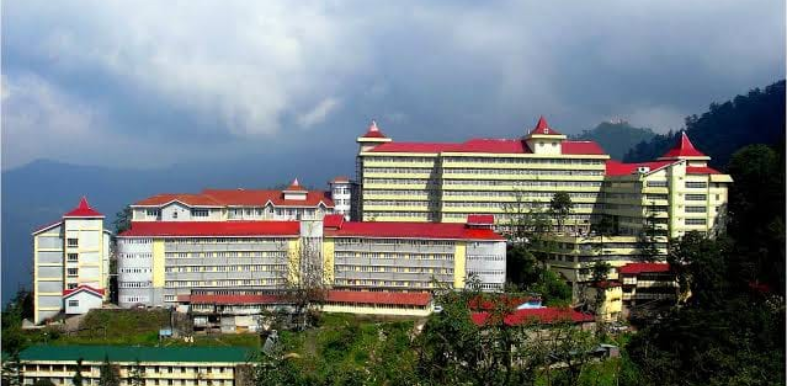Munish Sood
MANDI: While sisters across India tied colourful threads on their brothers’ wrists this Raksha Bandhan, a young woman at Manali in Himachal Pradesh continued a ritual that has been part of her life for nearly two decades — tying a rakhi to a cedar tree she planted as a child.
Kalpana Thakur, now 20, was just three years old when she planted a small cedar sapling outside her home in Aleo Behal, a locality in Manali.
Guided by her father, noted environmentalist and national award winner Kishan Thakur, she nurtured the sapling year after year, watering it, protecting it from damage and watching it grow. Today, the tree stands over 20 feet tall.
For Kalpana, the cedar is more than just a plant — it is her “younger brother”. Every Raksha Bandhan, she dresses in traditional attire, performs a small puja and ties a rakhi to its trunk, praying for its long life. This year was no exception. On Saturday morning, she and her father walked to the site, carried out the rituals and adorned the tree with a bright, handmade rakhi. She also planted a new sapling nearby to mark the occasion.
“I’ve grown up with this tree. I’ve tied rakhis to it in sunshine, rain and snow. For me, it’s part of my family,” Kalpana said, her voice carrying both pride and affection.
Kalpana originally hails from Mooling village in Lahaul-Spiti district, a tribal region of Himachal Pradesh, but the family has been settled in Manali for years. Her father’s lifelong commitment to environmental conservation has shaped her outlook. “Planting and protecting trees is the simplest gift we can give to the next generation,” said Kishan Thakur. “When children see nature treated like family, they grow up valuing it.”
Kalpana’s cedar tree now offers shade to pedestrians and a home to birds, but to her, its greatest value lies in the bond it represents — a bond of care, trust, and responsibility.
Eco-friendly Raksha Bandhan gains popularity across India
Kalpana’s tradition may be deeply personal, but similar eco-friendly Raksha Bandhan celebrations were seen in many parts of the country this year.
In Varanasi, a group of college students tied rakhis to ancient banyan trees along the Ganga ghats and carried out a cleanup drive. In Rajasthan’s Pali district, women tied rakhis to earthen water pots at public wells, highlighting the importance of water conservation in drought-prone areas.
In Sikkim, schoolchildren decorated saplings planted earlier this year and pledged to care for them until they became fully grown trees. Local eco-clubs replaced plastic-based threads with rakhis made from jute and recycled paper.
NGOs drive ‘Rakhi for Earth’ campaign
Environmental organisations used the festival to push their conservation campaigns. In Delhi, Mumbai and Bengaluru, NGOs distributed seed-embedded “plantable rakhis” that sprout into flowers or herbs when sown. The campaign #RakhiForEarth trended on social media, with images of tree trunks, potted plants and even pets adorned with rakhis flooding Instagram and X (formerly Twitter).
In Budgam, Jammu & Kashmir, Army personnel tied rakhis sent by local schoolchildren to pine trees along their patrol routes, describing them as “silent sentinels” of the valley.
Sociologists say this blending of tradition with environmental awareness is a natural progression. “Raksha Bandhan’s essence is protection. Extending that to nature is an adaptation of the ritual to address modern challenges like deforestation and climate change,” said Dr. Ananya Rao, Professor of Sociology at Delhi University.
For Kalpana, the festival is also a yearly reminder of a promise made to herself. “When I tied the first rakhi to this tree, I didn’t know I’d still be doing it 17 years later. But now, it’s part of my life’s story,” she said.





